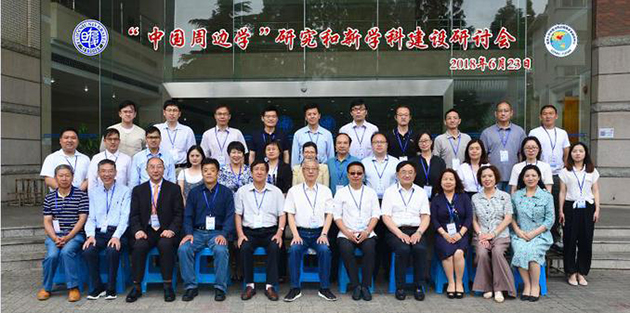Studying neighboring countries can help realize China’s dream

The symposium on Studies of Neighboring Countries in China and New Disciplines Construction was held at Fudan University on June 23.
China should appropriately tackle its relationship with neighboring countries.There is an urgent need to develop a discipline which studies neighboring countries. Recently, a symposium on this domain of studies was held in Shanghai, dedicated to such fundamental issues as the mission, theoretical framework and core topics of this discipline.
The mission and goal of the discipline of studies on neighboring countries in China is to explore the strategies that China may adopt in tackling relations with neighboring countries when it becomes a “strong” nation, said Shi Yuanhua, director of the Center for China’s Relations with Neighboring Countries of Fudan University. It should give answers to questions about how China should build friendly, cooperative and win-win relations with its neighboring countries and establish a community of shared destiny as it has proposed, he said.
Zhao Weihua, a research fellow from the Guangdong Institute for International Strategies, said that China’s studies of its neighboring countries are meant to build a completely equal community of shared destiny for China and its neighboring countries, which should show mutual respect and pursue mutual benefits and win-win results. It’s distinctively different from regional studies which prioritize the interests of a specific country, Zhao said.
The idea of a community of shared destiny was first proposed in China’s neighborhood diplomacy, and the establishment of this community should also begin with interactions between China and its neighboring countries, said Qiu Fahua, an associate professor of international relations from the University of Shanghai for Science and Technology. The studies of China’s neighboring countries should take the idea of a community of shared destiny for humanity as its theoretical foundation and aim to promote the establishment of such a community, she said. These studies should broaden their field of vision by paying more attention to the practical conditions, historical experience and the approaches to establishing this community, she said.
China’s studies on its neighboring countries are not evocative of the tributary system from history, nor the “China-centrism” as speculated by some scholars both from Western countries and China’s neighboring countries, Shi said. It is rather a new theory with Chinese characteristics in conformity with the needs of the era, established by summarizing and absorbing the reasonable ingredients from both the fine traditional Chinese culture and the Eastern theories of international relations, he said.
For example, economically, the new discipline should dedicate itself to getting rid of the old geopolitical economic theories and old paradigm of globalization, and summarize and elucidate the experience and regular patterns of establishing the “Belt and Road” under the principle of achieving shared growth through discussion and collaboration, Shi said. The complexity and comprehensiveness of China’s relations with its neighboring countries demands China’s studies on this to be inclusive and open. Yang Luhui, director of the Institute of Asia-Pacific Studies at Shandong University, suggested that Chinese scholars should take an all-dimensional and interdisciplinary vision when studying the relationships between China and its neighboring countries.
Chen Fenglin, a professor from the School of History at Beijing Normal University, stressed the significance of a holistic mentality in studies of neighboring countries of China. When studying these countries, China and its neighboring countries should be considered as an organic whole, he said. We should notice both the differences between them as well as what they have in common, he added. This requires Chinese scholars to change the situation where more attention was paid to the historical development of these countries and less to the connections among these nations, Chen said, adding that neighboring countries can be studied as a whole rather than respectively and separately.
This discipline should also explore how the domestic political and economic situations in these neighboring countries are connected to their relationships with China, said Zhong Feiteng, director of the Department of Neighborhood and Global Strategies of China at the National Institute of International Strategy under the Chinese Academy of Social Sciences. In fact, China’s neighboring countries have drastically different political systems, compositions of nationalities, stages of development and resource endowments, and they are good subjects for comparative studies, he said.
(edited by CHEN ALONG)

 PRINT
PRINT CLOSE
CLOSE